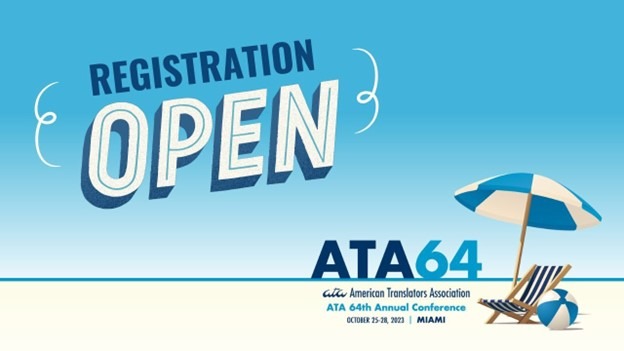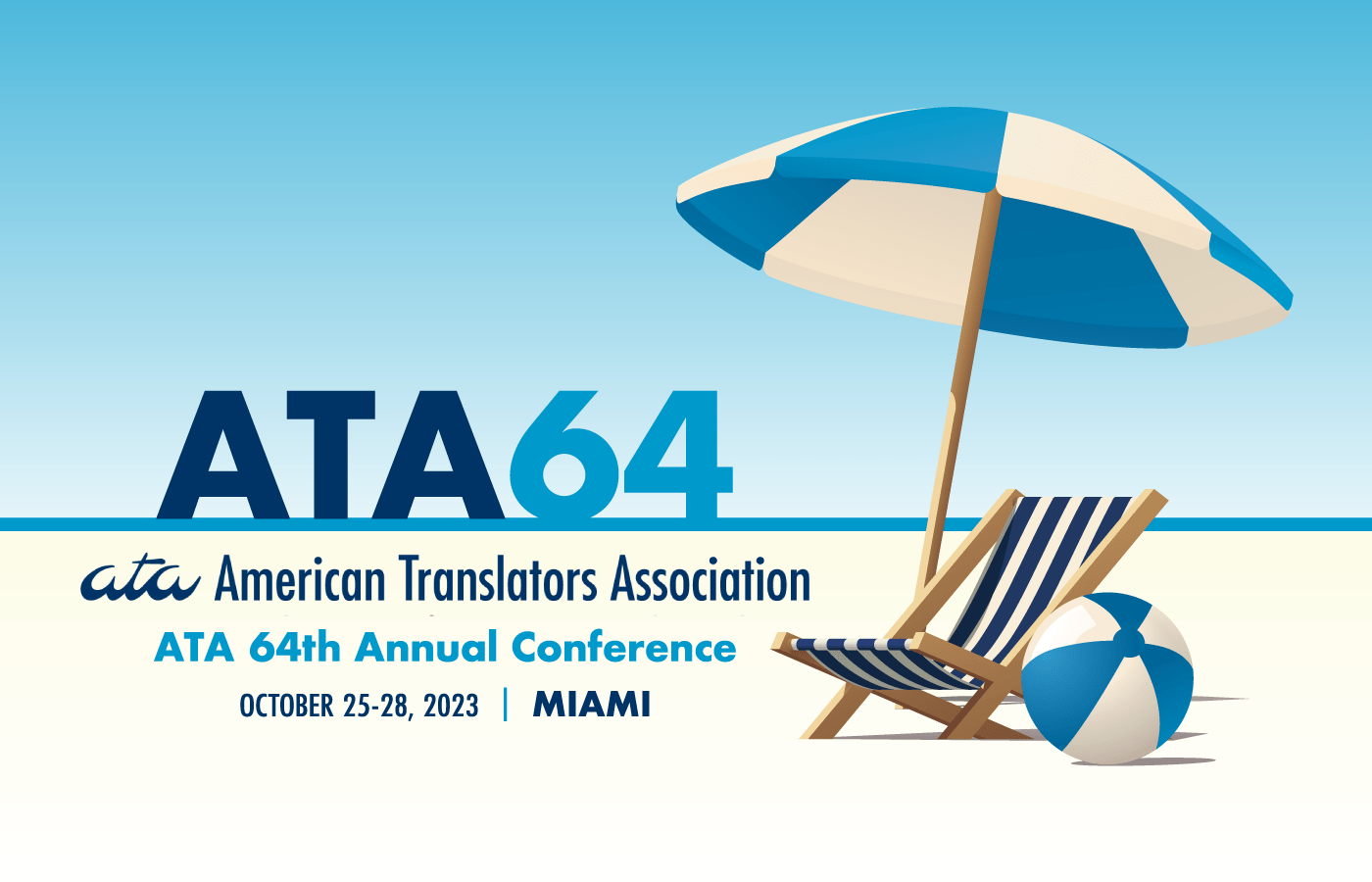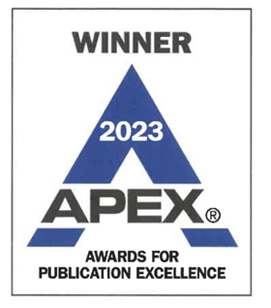
ATA Advocacy at Work: Bill Threatening to Weaken Court Interpreting Standards Derailed
Over the summer, ATA has been working hard to protect the rights of court interpreters in California. Earlier this year, the California Assembly introduced a bill, AB 432, that would have significantly reduced the requirements for serving as a court interpreter. We organized to oppose this bill, and on August 2, 2023, ATA’s Advocacy Committee learned that the bill will not advance this year. Instead, AB 432 will become a “two-year study bill.”
What is a two-year bill?
As explained by the League of California Cities, a two-year bill is:
A bill that is “dead,” “stalled,” “held,” or simply “not moved” by the author in the first year of a two-year session and cannot be heard again until the second year of the session. Generally, a bill becomes a two-year bill when it fails to meet a legislative deadline, such as a fiscal committee or policy committee deadline.
What does this mean for interpreters in California?
This move signals that the California legislature heard us! The interpreting community made it clear that this bill was misguided and failed to address the reason it was written: to attract and qualify more interpreters. The legislature also heard from YOU and no doubt read the negative media coverage about the potential effects of this bill, which risked squandering taxpayer dollars on an untested training program that would do little to effectively recruit more qualified interpreters without an inflation-adjusted increase in pay. Interpreters across the country have been demanding (and receiving) long-awaited increases to their stagnated pay that are more commensurate with the knowledge and skills needed to serve as a court interpreter. California interpreters deserve increases in pay, too, especially given the clear priority placed on meaningful language access, the value of interpreters’ work within our judicial system, and the broader understanding of the rigor involved.
Your advocacy hard at work
In July, we called on ATA members in California to contact their legislators and urge them to oppose this bill. We thank you for speaking up and exercising your constitutional right to advocate on your and your colleagues’ behalf.
Learn more about ATA’s advocacy efforts
To support ATA’s mission of advocating on behalf of the profession and the important work of the all-volunteer ATA Advocacy Committee, visit ATA’s Advocacy and Outreach page.

Now Playing! E89: The 2023 ATA Halftime Show
Industry News
British Museum Reaches Settlement with Translator Whose Work Was Used without Permission
NBC News (NY) (08/09/23) Kaur, Brahmjot
A translator has reached a settlement and received an apology from the British Museum months after her work was used in a temporary exhibit without her permission or credit.
Translations by Yilin Wang, a Chinese to English translator, writer, and editor, of poetry by the Chinese revolutionary and poet Qiu Jin were used in the museum’s exhibit “China’s Hidden Century,” which focuses on life in the country during the 19th century.
“I am happy to announce that the British Museum and I have reached a settlement after they used my translations of Qiu Jin’s poetry in the ‘China’s Hidden Century’ exhibit without permission, pay, or credit for over a month, and their later action of removing both my translations and Qiu Jin’s poetry from the exhibit,” Wang wrote on her website. Wang also stated that her translations will be reinstated with appropriate credit and compensation.
The British Museum issued a news release that acknowledged its wrongdoing and said there isn’t a policy to address the clearance of translations specifically. “The British Museum apologizes to Yilin Wang for this oversight,” the release stated. “The British Museum takes copyright permission seriously and recognizes the importance of the role of translators and the value of their work, which in many cases helps to further the Museum’s research and widen public access through display.”
Wang took to social media in June to call out the museum, saying it didn’t contact her to use the translations. Her thread included a link to a page on her website featuring her translations of Qiu Jin’s poetry, as well as a screenshot of the museum’s guide on the exhibit online and the on-site exhibition text, to show their similarity.
“I really appreciate the community support that I received throughout this, and it was truly a community effort,” Wang said. “Qiu Jin was a queer, feminist poet whose work remains very relevant to this day, and she is an icon for queer and trans communities. She wrote a lot about women’s friendships, queerplatonic relationships, cross-dressing, and gender equality, and I hope that I can share more translations of her work with readers in the future.”
Wang crowdfunded 19,200 pounds ($24,426) through CrowdJustice in July to find legal representation to take action against the museum. She said she plans to donate half the settlement amount to support translators of Sinophone poetry. “I hope my donations can help fund a series of workshops with a focus on feminist, queer, and decolonial approaches to translation in honor of Qiu Jin,” she said on her website.
Wang also emphasized the importance of crediting translators for their work. “Let this be a lesson for the British Museum and other museums, organizations, and publications that permission must be obtained for the use of copyrighted translations, and that it’s important to always #NameTheTranslator and pay them professional fees for their work.”
New York Interpreters Allege Discrimination by Court System in Underpayment Lawsuit
Slator (Switzerland) (08/15/23) Albarino, Seyma
On July 26, New York Communities for Change, a Brooklyn-based nonprofit, and 29 interpreters filed a lawsuit alleging that the court system systematically underpays interpreters. The interpreters named in the lawsuit work in eight New York counties, including all five boroughs of New York City, and work in Spanish, Mandarin, Cantonese, Polish, and American Sign Language.
The argument: New York’s court system discriminates against interpreters and the clients they serve, who are “largely of non-U.S. national origin, either by birth or ancestry.”
According to the plaintiffs, interpreters’ inordinately low pay and the resulting “dysfunction in justice” for limited-English-proficient (LEP) New Yorkers is a violation of the 14th Amendment’s guarantee of equal protection.
Unlike many interpreters involved in strikes in other states, the plaintiffs in New York’s class action lawsuit are all employees of the court, not independent contractors.
According to the summons, the defendant, the New York Unified Court System (UCS), employs 246 full-time and part-time interpreters who work in 20 spoken languages and American Sign Language. The lawsuit points to the disparity in pay between New York court interpreters and other court personnel, with an emphasis on court reporters, whose work is most similar to interpreters.
To demonstrate that interpreting is more challenging than court reporting, the plaintiffs cited the lower pass rate for Spanish court interpreters (10%) versus court reporters (55%) for their respective UCS civil service exams, as well as interpreter compensation at the federal level.
According to the lawsuit, federal court interpreters can earn between $120,580 and $156,758 for their work; their compensation exceeds that of federal court reporters, court clerks, and court officers. The range for state court interpreters in New York is between $60,245 and $85,886. That means that New York court interpreters are paid about half of what their federal counterparts receive. In New York, the maximum compensation for court interpreters is 35% less than that of court reporters. But in the federal system, interpreters earn 32% more than court reporters.
If, as the plaintiffs allege, court interpreting is a more demanding profession than court reporting, what explains the disparity in pay? Discrimination, they say.
“Court interpreters in the New York State Court system are largely foreign-born, or second generation from foreign-born families. Their clients are 100% foreign-born,” court documents state. “Court reporters are largely Caucasian and do not come from a foreign-born background.”
The plaintiffs want the case to result in an injunction that will set new pay scales for court interpreters.
U.S. Department of Justice Announces Final Resolution of Language Access Civil Rights Matter in Fort Bend County, Texas
U.S. Department of Justice (DC) (08/02/23)
The U.S. Department of Justice announced it has secured a final resolution in a civil rights matter involving the courts in Fort Bend County (FBC), Texas.
The Justice Department initially opened the matter based on allegations that FBC courts discriminated against people with limited English proficiency (LEP) based on their national origin and retaliated against a complainant in violation of Title VI of the Civil Rights Act of 1964 (Title VI), which prohibits discrimination based on race, color, and national origin by any recipient of federal financial assistance. One complaint alleged the FBC District Court denied one LEP criminal defendant a Vietnamese interpreter for a plea hearing, stating that the defendant or his attorney had to find and pay for a Vietnamese interpreter. On June 29, 2021, the Justice Department and FBC courts resolved the investigation with a memorandum of agreement that required significant changes to language access policies for LEP individuals.
Since then, FBC courts have made significant changes to improve access for LEP individuals and comply with Title VI requirements, including:
• Providing free interpreter services to LEP individuals, regardless of income, in all civil and criminal cases.
• Revising its language access plan.
• Creating a language access training for court staff and a Judge’s Guide to Language Access.
• Maintaining a public web page that explains how to request interpreting or translation services.
• Providing a language access complaint form in several languages on its website.
• Providing court staff with Title VI retaliation training to ensure compliance.
“The new policies and practices adopted by the Fort Bend County courts are helping to provide meaningful language access for people with limited English proficiency,” said Assistant Attorney General Kristen Clarke of the Justice Department’s Civil Rights Division. “I hope other court systems follow Fort Bend County’s example and take action to provide interpreter services to court users at no cost. Access to justice in our country should not be limited or denied simply because of your proficiency in English.”
Study Suggests Music Can Help People Learn a Second Language
UBNews (NY) (08/02/23) Gambini, Bert
A new study from the University of Buffalo in New York published in the Journal of Experimental Psychology: Human Perception and Performance suggests that a background in music helps speakers learn a tonal language, such as Mandarin.
Results from the study indicate that people with musical training—whether instrumental or vocal—are better at imitating pitch than someone without that training. Understanding pitch structure is critical with tonal languages that rely on inflection to communicate meaning. Unlike English, where the inflection placed on a single word can alter a word’s pitch in ways that convey emphasis or emotion, altering pitch in a tonal language can change a word’s meaning.
“Both a musical background and a Mandarin language background influences the ability to match pitch,” said Chihiro Honda, a graduate student of psychology in the College of Arts and Sciences and lead researcher of the study team. “These findings imply that teachers might want to introduce music as part of their instruction for those trying to acquire a second language.”
The research team recruited 127 participants for the study: Mandarin and English speakers, both with and without a background in music. Researchers created 96 short sentences in each language phrased as both a statement and a question (e.g., “The children can’t sleep”).
Researchers then used computer software to create pitch patterns based on the spoken sentences and composed short melodies based on the pitch of each syllable. Participants listened to and then vocally reproduced these synthetic pitch patterns and melodies, but never heard the original spoken sentences. After collecting data, researchers calculated the differences between target pitch and what participants produced.
“Musicians were more accurate in matching absolute pitch across syllables and musical notes than non-musicians,” Honda said. “Mandarin speakers were more accurate at imitating changes within and across pitch patterns compared to English speakers.”
According to Peter Pfordresher, a professor of psychology at the University of Buffalo and one of the researchers involved with the study, the results also speak to the long-standing debate about whether our brains have separate networks for language and music.
“This study isn’t the final say on that debate, but we seem to have the same network at work for both behaviors,” Pfordresher said. “We might rely on different features of that network depending on whether we’re in a language or a music situation. If you’re attuned to paying attention to pitch through learning a tonal language or through music, that training is going to help you in either situation.”
ATA News
ATA 2023 Elections Update: Final Slate of Candidates Announced
ATA will hold its regularly scheduled elections during ATA’s 64th Annual Conference in Miami, October 25–28, 2023, to elect a president-elect, secretary, and treasurer (each a two-year term), as well as three directors (each a three-year term).
The slate of candidates for the 2023 elections has now been finalized by ATA’s Nominating and Leadership Development Committee (NLDC). Article VII, Section 2 d. 2) of ATA’s Bylaws states that the NLDC “shall propose multiple candidates for each elective position of the Association….”
This year’s candidates are:
President-elect
Geoff Koby
Meghan McCallum
Treasurer
Robin Bonthrone
Marian S. Greenfield
Secretary
Eve Bodeux
Helen Eby (withdrew)
Jaime Russell
Director
Yasmin Alkashef
Analía Bogdan
Jason Knapp
Jessie Liu
Daniel Sebesta
Robert Sette
Chaowei Zhu
Candidate statements and photos of the candidates will appear in the September/October issue of The ATA Chronicle and on ATA’s website.
Become an ATA Voting Member
Did you know that you do not need to be ATA-certified to vote? Any ATA Associate Member who can demonstrate that they are professionally engaged in translation, interpreting, or closely related fields may apply for Voting Membership. How? Just complete and submit the ATA Active Membership Review application. No additional paperwork required. It’s fast, free, and easy!
Registration for ATA64 Is Open!

Attend educational sessions, job recruitment events, and networking opportunities, all designed specifically for professional translators and interpreters. Visit the ATA64 conference website for a complete rundown of the sessions and events being offered this year! Here are some highlights of what to expect in Miami!
Education: Learn from the experts! The breadth and depth of the general conference sessions not only feature the experience and knowledge of your colleagues but also Distinguished Speakers.
Networking: From the Welcome Celebration, Buddies Welcome Newbies, Brainstorm Networking, Stronger Together Networking, and Division events to the hotel elevator—networking opportunities are everywhere!
Advanced Skills & Training (AST) Day: AST Day takes place Wednesday, October 25. A “conference-before-the-conference,” AST Day offers a selection of three-hour courses specifically chosen to provide intensive, interactive instruction from highly acclaimed speakers. (You must be registered for the 3-day conference to register for these courses. Additional fees apply.)
Job Fair: Don’t wait to have your website and résumé found online. Go where the jobs are! Company reps will host tables and post their current and ongoing needs at this recruitment event. Don’t miss this opportunity to connect with clients who are ready to meet, interview, and hire you!
Exhibits: Find everything you need in one place! ATA’s Exhibit Hall allows you to discover new products, learn about school programs, and see which agencies are hoping to recruit your services. (Click here for information on exhibiting.)
T&I Book and Resource Fair: Celebrate books written by colleagues and discover T&I podcasts, blogs, training, and other resources created and offered by translators and interpreters.
Continuing Education Credit: Earn while you learn! ATA64 provides continuing education opportunities for both ATA-certified translators and credentialed interpreters. The Continuing Education Credit page on the conference site will be updated as approvals are received.
For complete details on all events, see the ATA64 Conference Schedule.
Book Your Room Today at the Official ATA64 Conference Hotel!
ATA64 will be held at the Hyatt Regency Miami. Rooms are booking fast. Make your reservations now to take advantage of the special rates for ATA64 attendees! ATA rates are available until September 29, 2023, or as space allows.
Register Today!
Register by September 16 and save! Can’t attend the entire conference? ATA is offering a Saturday-Only registration rate.
Join and Save!
Not an ATA member? Join ATA and save with our mid-year membership rates. Save 50% on your 2023 membership dues when you join for 2024. Join today and your membership will not expire until December 31, 2024. Learn more here!
Questions? Need more info?
Contact Adrian Aleckna at adrian@atanet.org
Phone: +1-703-683-6100, ext 3001
ATA Mid-Year Membership Campaign: Refer 5 Friends for a Chance to Win!
Our mid-year membership campaign is in full swing and you can help! All you have to do is refer 5 potential members. If they join/rejoin by September 30, 2023, you’ll be entered to win a $500 Visa gift card!
*Make sure the person you refer writes your name on their membership application where it says “Did a Friend Refer You?”
** The deadline to be entered is September 30, 2023.
Learn more here
ATA Membership Diversity Award
 Each year, the American Foundation for Translation and Interpretation (AFTI) offers a limited number of fully paid ATA memberships to individuals joining ATA for the first time who are Black, Indigenous, or people of color. Each year, the American Foundation for Translation and Interpretation (AFTI) offers a limited number of fully paid ATA memberships to individuals joining ATA for the first time who are Black, Indigenous, or people of color.
Award recipients will be selected based on answers to essay questions on the application form. The selection committee will give preference to students and newcomers to the translation and interpreting professions, including people changing careers. The award will be distributed across as many language pairs as possible in any given year. At least one award per year must go to a U.S. citizen by birth. Applications will be accepted until all awards are made.
Apply Now!
Upcoming Webinars
ATA TEKTalks: Is LSP.expert the Right Tool for You?
August 24: 12:00 p.m. – 12:45 p.m. EDT
Presenter(s): Anne-Sophie De Clercq
Learn the pros and cons of the top language localization tools to discover which one best fits your needs and goals!
Register Here (Free to ATA Members!)
The Ins and Outs of Machine Translation in Trados Studio
August 31: 12:00 p.m. – 1:30 p.m. EDT
Presenter(s): Nora Díaz
Ready to make machine translation work for you in Trados Studio? In this webinar, we’ll explore the MT engine included with Trados Studio, along with apps that provide access to other MT engines.
Register Here
LGBTQIA+ Terminology and the Law for Translators and Interpreters
September 7: 11:00 a.m. – 1:00 p.m. EDT
Presenter(s): Vinka Valdivia
Join this webinar to expand your linguistic and cultural proficiency and contribute to your professional growth as a translator or interpreter in the ever-evolving landscape of LGBTQIA+ legal and health care matters.
Register Here
Exploring Cultural Concepts of Distress in Mental Health Interpreting
September 12: 5:00 p.m. – 6:30 p.m. EDT
Presenter(s): Arianna M. Aguilar
Attend this webinar to explore the intricate realm of mental health interpreting and its connection to cultural concepts of distress!
Register Here
Arabic Syntactic Error Analysis
September 26: 12:00 p.m. – 1:30 p.m. EDT
Presenter(s): Mahmoud ElSherif
Discover essential techniques for crafting impeccable Arabic writing! Don’t let syntactic issues hold you back! Attend this webinar to improve your skills and open doors to success.
Register Here
ATA64: How to Prepare and Pre-Conference Virtual Networking
October 2: 12:00 p.m. – 1:00 p.m. EDT
Presenter(s): Ben Karl
Get ready for ATA64 with this webinar that will ensure you’re fully prepared and ready to network virtually before the conference!
Register Here
Call for Articles: Translatio
The editorial team of Translatio, the quarterly newsletter of the International Federation of Translators (FIT), is seeking articles from members of FIT organizations in English, French, or Spanish for their next International Translation Day issue.
Articles can be about initiatives or achievements at your association or organization, International Translation Day, past or upcoming conferences, board elections, etc. To recap a recent initiative or event for fellow member associations, consider sending high-quality photos with detailed captions in lieu of an article. If possible, please consider providing submissions in more than one language to assist the editorial committee. Articles that do not meet the submission guidelines will not be accepted. Please note that articles may be edited for clarity and style. (Past issues may be viewed here.)
Submission Deadline: August 18, 2023
Please submit articles to translatio@fit-ift.org
Purchase a Recording Today!
ATA’s Translating and Interpreting the Future Virtual Conference
Did you miss ATA’s Translating and Interpreting the Future Virtual Conference on Saturday, May 20, 2023? Don’t worry. You can purchase the recording on ATA’s website. Start learning today!
Note: If you registered to attend the virtual conference, log into the virtual conference site to access the videos. Conference attendees will have access to the videos until August 20, 2023.
Submit Your Member News!

Do you have news to share with us?
If so, you might be featured on our social media channels. You may submit your news here.

|








 Each year, the American Foundation for Translation and Interpretation (AFTI) offers a limited number of fully paid ATA memberships to individuals joining ATA for the first time who are Black, Indigenous, or people of color.
Each year, the American Foundation for Translation and Interpretation (AFTI) offers a limited number of fully paid ATA memberships to individuals joining ATA for the first time who are Black, Indigenous, or people of color.







